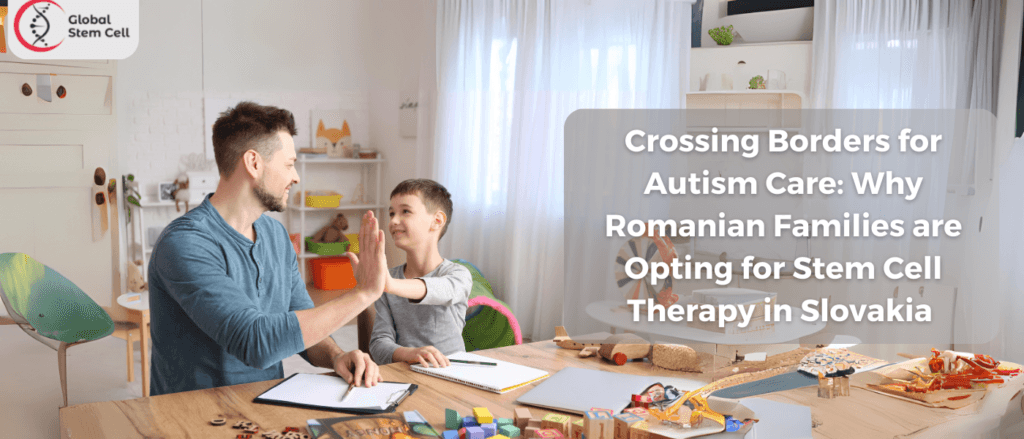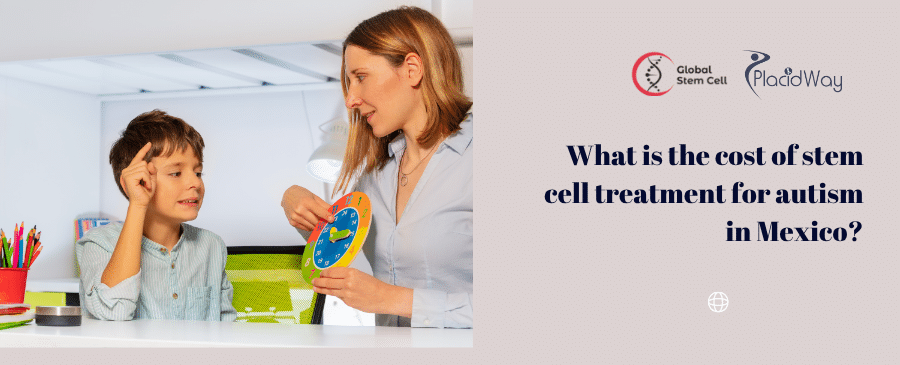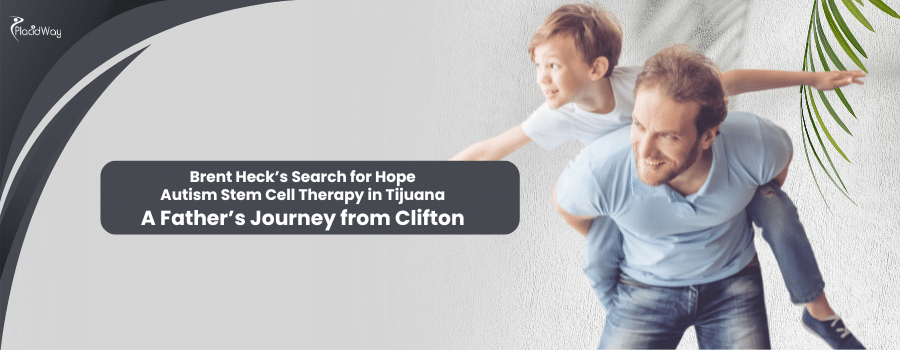
The journey of searching for effective autism treatments can be long and arduous, often filled with uncertainty and hope. Romanian families are now looking beyond their borders to explore innovative options, such as stem cell therapy for autism in Slovakia. This article delves into how Romanian families are turning to these advanced treatments and how organizations like PlacidWay are facilitating access to cutting-edge medical care. This cross-border medical collaboration is not only opening new avenues for treatment but also providing hope for families seeking a better quality of life for their children.
Understanding Autism and the Need for Innovative Therapies
Table of Content
Autism Spectrum Disorder (ASD) is a neurodevelopmental condition characterized by challenges in communication, social interactions, and repetitive behaviors. The prevalence of autism is increasing globally, and traditional therapies such as behavioral therapy and medication may not fully address the spectrum of symptoms experienced by individuals with autism.
The growing need for innovative and effective treatments has led to the exploration of alternative therapies, including stem cell therapy. While still considered experimental in some regions, stem cell therapy is gaining recognition for its potential to improve symptoms and enhance the quality of life for individuals with autism.
Why Are Romanian Families Seeking Treatment Abroad?
Access to advanced medical treatments can vary significantly depending on the country. In Romania, the healthcare system is still evolving, and cutting-edge treatments like stem cell therapy for autism are either unavailable or in their early stages of development. This has led Romanian families to seek medical interventions abroad, where the quality of care and availability of innovative therapies are more robust.
Slovakia has emerged as a leading destination for stem cell therapy, offering state-of-the-art facilities, experienced medical professionals, and a strong regulatory framework that ensures patient safety. The proximity of Slovakia to Romania makes it a convenient option for families, who can travel without significant logistical challenges.
How Does Stem Cell Therapy for Autism works?
Stem cell therapy involves the use of stem cells to repair or replace damaged cells within the body. For autism treatment, stem cells are believed to help by reducing inflammation in the brain, promoting the repair of neural pathways, and supporting the regeneration of healthy brain cells. This approach aims to improve cognitive functions, enhance communication skills, and reduce behavioral issues commonly associated with autism.
Different types of stem cells can be used, such as mesenchymal stem cells (MSCs), which are known for their ability to modulate immune responses and repair damaged tissues. In Slovakia, clinics like CellCenter are utilizing cutting-edge stem cell technologies, combining them with individualized treatment plans to target the unique needs of each patient.
The Role of PlacidWay in Bridging the Gap for Romanian Families
Navigating the complex world of international medical treatments can be overwhelming, especially when language barriers, cultural differences, and legal requirements come into play. This is where organizations like PlacidWay step in, providing a bridge between patients and healthcare providers.
PlacidWay is a global medical tourism platform that connects patients with medical centers worldwide. It plays a pivotal role in helping Romanian families find reliable stem cell therapy providers in Slovakia. Through PlacidWay’s platform, families can access detailed information about treatment options, compare clinics, and even receive support with travel arrangements and documentation.
CellCenter in Slovakia: A Leading Provider of Stem Cell Therapy for Autism
CellCenter, located in Slovakia, is at the forefront of stem cell research and therapy, particularly for neurodevelopmental disorders such as autism. This state-of-the-art medical facility is equipped with advanced technology and a team of specialized medical professionals, offering comprehensive and personalized stem cell treatment plans. With a strong emphasis on safety, efficacy, and patient-centered care, CellCenter has built a reputation as a leading destination for families seeking innovative autism treatments.
What Sets CellCenter Apart?
- Innovative Stem Cell Protocols: CellCenter uses a range of stem cell sources, including mesenchymal stem cells (MSCs), to develop customized treatment plans that address the specific needs of each patient. These protocols are designed to repair neural pathways, reduce brain inflammation, and promote overall brain health.
- Experienced Medical Team: The team at CellCenter includes neurologists, pediatric specialists, and stem cell researchers who have extensive experience in treating autism and other neurodevelopmental disorders. Their expertise ensures that patients receive the highest level of care throughout the treatment process.
- Comprehensive Pre- and Post-Treatment Care: Before initiating stem cell therapy, patients undergo a thorough assessment that includes neurological evaluations, blood tests, and imaging studies to ensure that the treatment is tailored to their unique condition. Post-treatment, CellCenter provides ongoing support and follow-up to monitor progress and make necessary adjustments to the therapy plan.
- Patient-Centric Approach: CellCenter prioritizes the comfort and well-being of its patients and their families. The clinic offers a holistic approach that combines stem cell therapy with other supportive therapies such as occupational therapy, speech therapy, and behavioral therapy, creating a comprehensive treatment framework.
Procedure of Stem Cell Therapy at CellCenter in Slovakia
CellCenter’s advanced stem cell therapy process is designed to be both thorough and patient-friendly, ensuring that families have a clear understanding of the treatment steps and potential outcomes.
- Initial Consultation and Evaluation: The process begins with a detailed consultation where the medical team reviews the patient’s medical history, current symptoms, and developmental milestones. This step is crucial for determining the suitability of stem cell therapy and designing a customized treatment plan.
- Stem Cell Harvesting and Preparation: Stem cells can be sourced from various origins, including umbilical cord blood or bone marrow. CellCenter uses only ethically sourced and rigorously tested stem cells to ensure safety and efficacy.
- Stem Cell Administration: The treatment involves the administration of stem cells through methods such as intravenous infusion or lumbar puncture, depending on the patient’s condition and the doctor’s recommendations. The procedure is performed in a sterile environment to minimize the risk of complications.
- Monitoring and Follow-up: After the treatment, the patient’s progress is closely monitored through regular follow-up appointments. These sessions help the medical team assess the effectiveness of the therapy and make any necessary adjustments to the treatment plan.
Benefits of Choosing CellCenter for Autism Treatment
Families opting for stem cell therapy at CellCenter have reported various improvements in their children’s condition, including enhanced language skills, better social interactions, and reduced anxiety and repetitive behaviors. Some of the standout benefits include:
| Feature | Description |
|---|---|
| Individualized Care Plans | Each treatment plan is tailored to the patient’s specific needs, ensuring a higher likelihood of positive outcomes. |
| Holistic Support | CellCenter combines stem cell therapy with other therapeutic approaches to address the diverse symptoms associated with autism. |
| State-of-the-Art Facility | The clinic is equipped with the latest technology, ensuring a safe and comfortable environment for treatment. |
Challenges and Considerations for Families Opting for Stem Cell Therapy Abroad
While the potential benefits of stem cell therapy are promising, families considering this option must be aware of the challenges and considerations involved. These include:
- Cost of Treatment: Stem cell therapy can be expensive, and it is often not covered by insurance. Families need to consider the total cost, including travel, accommodation, and post-treatment care.
- Regulatory Differences: The regulatory landscape for stem cell therapy varies from country to country. Slovakia has stringent regulations to ensure patient safety, but it’s essential for families to understand these regulations before proceeding.
- Medical Risks: As with any medical intervention, stem cell therapy carries potential risks, such as infection, immune reactions, or complications related to the procedure.
How PlacidWay Supports Families Through the Treatment Process
PlacidWay provides end-to-end support for families seeking stem cell therapy in Slovakia. Their services include:
- Detailed Information: Comprehensive profiles of clinics, treatment options, and medical professionals.
- Patient Coordination: Assistance with scheduling appointments, arranging consultations, and managing travel logistics.
- Legal and Ethical Guidance: Helping families understand the legal requirements and ethical considerations of pursuing stem cell therapy abroad.
FAQs
What is stem cell therapy for autism?
Stem cell therapy for autism involves using stem cells to repair damaged cells in the brain, potentially improving cognitive functions and reducing symptoms associated with autism.
Why are Romanian families seeking treatment in Slovakia?
Romanian families are seeking treatment in Slovakia due to the lack of availability and development of stem cell therapies in Romania. Slovakia offers advanced medical facilities and experienced professionals.
Is stem cell therapy for autism safe?
While stem cell therapy shows promise, it is still considered experimental. Families should consult with medical professionals to understand the potential risks and benefits.
How does PlacidWay support families in accessing treatment abroad?
PlacidWay helps families by providing detailed information, coordinating appointments, and managing travel logistics, making it easier for them to access quality care abroad.
What are the potential benefits of stem cell therapy for autism?
Potential benefits include improved communication skills, enhanced social interactions, and reduced behavioral issues, though outcomes can vary.
What should families consider before opting for stem cell therapy?
Families should consider the cost, regulatory environment, and potential medical risks before pursuing stem cell therapy for autism abroad.
Ready to explore advanced stem cell therapy for autism? Discover how Slovakia’s leading clinics can provide new hope and possibilities. Contact us today.







